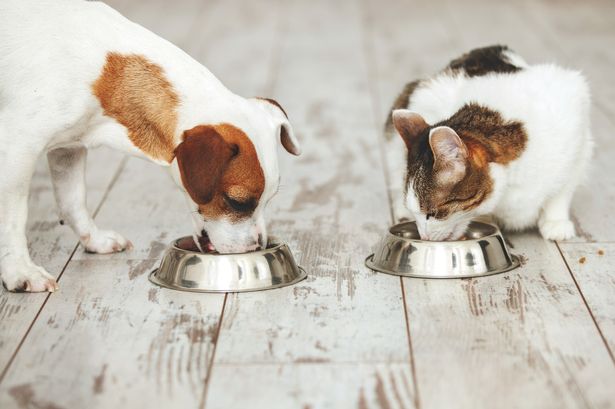The Portland-based pet food company, Northwest Naturals, has initiated a voluntary recall of its “Turkey Recipe” raw frozen diet for pets following the tragic death of a cat that consumed the product contaminated with the highly pathogenic avian influenza (HPAI) virus, commonly known as bird flu. This incident underscores the potential risks associated with raw pet food diets, particularly those containing poultry ingredients, and highlights the importance of stringent quality control measures throughout the pet food supply chain. While raw diets are favored by some pet owners for their perceived nutritional benefits, they also carry the inherent risk of transmitting pathogens like Salmonella, E. coli, and, as this case demonstrates, avian influenza, to pets and potentially their human owners.
The recalled product, Northwest Naturals’ “Turkey Recipe” frozen raw pet food, was distributed in various retail locations across the United States and Canada. The company promptly initiated the recall upon learning of the contaminated batch, demonstrating a commitment to pet safety and responsible manufacturing practices. Though this incident involved a feline fatality, the recall applies to all pets who may have consumed the affected product. Northwest Naturals has urged consumers who purchased the recalled product to immediately discontinue its use and dispose of it appropriately to prevent further transmission of the virus. The company also provided detailed contact information for consumers seeking refunds or further information regarding the recall. This proactive approach aims to mitigate the impact of the contaminated product and protect the health of pets and their owners.
The confirmation of HPAI contamination in the recalled pet food raises serious concerns about the sourcing and handling of ingredients used in raw pet food products. While the exact source of contamination in this case remains under investigation, it highlights the vulnerability of raw diets to pathogen contamination. Unlike commercially manufactured kibble or canned pet food, raw diets are not subjected to the same rigorous heat treatment processes that effectively eliminate most harmful bacteria and viruses. This underscores the importance of careful sourcing, handling, and storage of ingredients used in raw pet food production to minimize the risk of contamination. Furthermore, the incident emphasizes the need for increased surveillance and testing of raw pet food products to ensure their safety and prevent future outbreaks.
The tragic death of the cat from HPAI contracted through contaminated pet food serves as a stark reminder of the potential health risks associated with feeding raw diets to pets. Avian influenza viruses, while primarily affecting birds, can occasionally infect mammals, including cats and dogs, particularly through ingestion of contaminated poultry. Symptoms of HPAI in cats can vary from mild respiratory illness to severe neurological signs and, as tragically demonstrated in this case, even death. While the risk of HPAI transmission from pets to humans is considered low, it is not entirely negligible, particularly for individuals with compromised immune systems. Therefore, maintaining strict hygiene practices, such as washing hands thoroughly after handling pet food and avoiding contact with pet saliva, is crucial in mitigating potential risks.
The Northwest Naturals recall reinforces the importance of thorough research and careful consideration before choosing a raw diet for pets. While some pet owners believe that raw diets offer benefits like improved coat health and increased energy levels, these claims are often anecdotal and lack robust scientific backing. Conversely, the potential health risks associated with raw diets are well-documented, including the risk of bacterial and viral infections for both pets and their owners. Pet owners considering a raw diet should consult with their veterinarian to discuss the potential risks and benefits, as well as alternative feeding options that offer a balanced nutritional profile without the inherent risks of raw diets.
This incident underscores the need for increased regulation and oversight of the raw pet food industry to protect the health of both pets and humans. While some guidelines and recommendations exist for the safe handling and production of raw pet food, there is a lack of comprehensive regulations mandating specific safety standards. Implementing stricter regulations, such as mandatory pathogen testing and standardized hygiene protocols, could significantly reduce the risk of contamination and improve the overall safety of raw pet food products. Furthermore, increased public awareness regarding the potential risks associated with raw diets is crucial to empower pet owners to make informed decisions about their pets’ nutrition and minimize the incidence of foodborne illnesses in pets and their human companions. This proactive approach to pet food safety will contribute to a healthier and safer environment for both animals and their human families.














